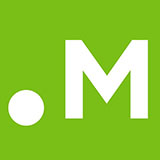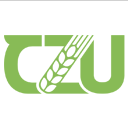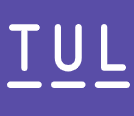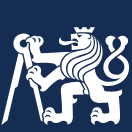Introduction
Charles University is one of the oldest and most famous universities in the Czech Republic and one of the oldest universities in Central Europe. It enjoys an international reputation for its excellent teaching and research.
Overview
Student size: As of 2021, the school has more than 50,000 students, including about 30,000 undergraduates and about 20,000 postgraduates, and there are international students from different countries and regions.
Faculty: It has many highly productive and internationally respected experts who focus on combining teaching with research in the teaching process, which has promoted the improvement of the school's teaching quality and the development of academic research.
History and establishment time
Founded in 1348 Founded in 1640 by the King of Bohemia and Holy Roman Emperor Charles IV during the reign of the Holy Roman Emperor, it was modeled after the universities of Bologna and Paris and quickly gained international reputation as one of the first universities in Europe.
School Strength
Professional Courses: It offers a wide range of undergraduate, master's and doctoral courses covering a variety of fields such as humanities, social sciences, natural sciences, medicine, law, such as history, philosophy, literature, linguistics, sociology, political science, psychology, physics, chemistry, geography, geology, biology, environmental science, medicine, stomatology, public health, pharmacy, law and other majors.
Teaching Achievements and Honors: As one of the world's famous research universities, its scientific research strength has been recognized globally and has cultivated many outstanding talents, including 4 Nobel Prize winners such as Albert Einstein and Jaroslav Heyrovsky, who have strong research capabilities in philosophy, mathematics, physics, chemistry, life sciences, medicine, social sciences, law and literature.
International Exchange and Cooperation: It is a member of the Coimbra Group, the International Forum of Public Universities, Europaeum, 4EU + The university is a member of the European University Association, the European University Foundation and the European Capital University Alliance. It actively carries out international exchange and cooperation projects, has established cooperative relations with many foreign universities, and provides students with abundant exchange opportunities for studying abroad.
Institutional nature
Public university.
Educational philosophy
Essentially pursues the unity of teaching and science, believes that the main way to quality education is that teachers are activated at the same time in the teaching process, and have productivity and internationally respected experts, that is, emphasizes the close integration of teaching and scientific research, improves teaching quality through scientific research, and cultivates high-quality talents with innovative spirit and practical ability.
Key laboratories and disciplines
Key disciplines: Arts and humanities, biology and biochemistry, heart and cardiovascular system, chemistry, clinical medicine, computer science and other disciplines are the key development disciplines of the school. In-depth research has been carried out in these fields and a series of important results have been achieved.
Key laboratories: The school has a number of advanced scientific research laboratories, which provide strong support for the research of various disciplines, but the specific key laboratories have not been clearly found.
Faculty
Charles University has a total of 17 faculties, including 3 theological faculties, 6 humanities and social science faculties, 5 medical faculties, and 3 academies of science, as follows:
Theological faculties: Catholic theological faculties, Protestant theological faculties, and Hussite theological faculties.
Humanities and social science faculties: Faculty of Philosophy, Faculty of Law, Faculty of Education, Faculty of Social Sciences, Faculty of Sports and Physical Education, Faculty of Humanities.
Medical faculties: First Medical Faculty, Second Medical Faculty, Third Medical Faculty, Pilsen Medical Faculty, and Hradec Kralove Medical Faculty.
Academic faculties: Faculty of Science, Faculty of Mathematics and Physics, and Faculty of Natural Sciences.
Ranking
Ranked 248th in the 2024 QS World University Rankings; ranked in the top 300 in the world (ranked 204th) and top 100 in Europe according to the Academic Ranking of World Universities by Shanghai Jiao Tong University; ranked 79th in the 2021 Global International University Rankings released by Times Higher Education.
Expenses
Tuition fees: Courses taught in Czech are free of charge, while courses taught in English, French, and German are charged tuition fees, ranging from 3,000 to 8,000 euros.
Accommodation and other fees: No specific accommodation fees or other fees were found, but the school has 13 student dormitory areas, 10 of which have cafeterias, and 4 on-campus There are student restaurants, which provide students with certain living conveniences.
Campus
Geographic location: Located in Prague, the capital of the Czech Republic, Prague is a beautiful city in the center of the European continent, known as the European Garden. There are many theaters, concert halls, museums, art galleries, galleries and other cultural and artistic venues in the city, providing students with rich cultural life and learning resources.
Campus facilities: The school provides a number of consulting services such as law, economics, and business in each campus. It also has a language and preparatory college with four branches in four different cities around Prague. The main one is the Maria (Hot Spring Resort) Learning Center. The teaching facilities and scientific research equipment on campus are advanced, providing good conditions for teachers and students to teach, research and learn.
-

The University of J. E. Purkyne in Ústí nad Labem
-

Mendel University in Brno
-

Charles University
-

Czech University of Life Sciences in Prague
-

University of South Bohemia in Ceské Budejovice
-

Metropolitan University Prague
-

Technical University of Liberec
-

Palacky University, Olomouc
-

Brno University of Technology
-

Czech Technical University in Prague
-

Mesoamerican University
-

Istmo University
-

Mariano Galvez University of Guatemala
-

Regional University of Guatemala
-

Galileo University
-

Francisco Marroquín University
-

Rafael Landívar University
-

University of the Valley of Guatemala
-

University of San Carlos of Guatemala
-

Technological Institute of Tlaxcala Plateau
-

Golfo University
-

Technological University of South Sonora
-

Technological University of Huejotzingo
-

Tizimín Institute of Technology
-

Chilpancingo Institute of Technology
